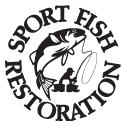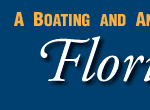CONTACT US:
Florida Fish and Wildlife
Conservation Commission
Fish and Wildlife
Research Institute
100 Eighth Avenue SE
St. Petersburg, Florida 33701
727-896-8626
|
|
|
Mote Marine Laboratory
Tropical Research Laboratory
24244 Overseas Hwy.
Summerland Key, FL 33042
305-745-2729
|
|
|

|
|
This project was funded in part by a grant awarded from Mote Marine Laboratory's Protect Our Reefs Grants Program, which is funded by proceeds from the sale of the Protect Our Reefs specialty license plate. Learn more at .
|

|
|
Additional funding for this project was obtained through the Federal Aid in Sport Fish Restoration Fund.
|
|
|
 |
In addition to diving and fishing, kayaking has become a popular way to explore the Keys. By silently paddling along the shoreline, kayakers can observe a wide range of wildlife. Fishing from a kayak has become a popular method for fishing the flats without the need of a flats boat (if you do fish from a kayak, you will need to purchase a fishing license).
Before heading out of any paddling adventure, please follow these safety tips:
- 1. WEAR A PERSONAL FLOTATION DEVICE (PFD)! Florida law requires a readily accessible Coast Guard approved PFD for each occupant. Children younger than six years-old are required to wear a PFD.
- 2. Know the waterway conditions and be aware of wave height or sea state and currents. Tides and winds can significantly affect the difficulty of a trip. Under normal conditions, allow a minimum of two miles per hour paddling time.
- 3. FILE A FLOAT PLAN AND LEAVE IT WITH A RELIABLE PERSON. A float plan contains information about your trip in the event that you do not return as scheduled. This includes a description of the vessel(s), names of all paddlers, planned course and stops, and an estimated time of return. Ask the person to notify the Coast Guard or local authorities if you do not return as scheduled. Don't forget to get in touch with your contact person and let them know when you return
- 4. Bring plenty of food and water. Drinks should be in non-breakable containers . Food and gear should be stored in watertight containers. For day trips, 1/2 gallon of water per person is recommended. For overnight trips, one gallon of water per person each day is recommended.
- 5. Bring sunscreen and insect repellent. Wear sunglasses, a hat, and long sleeves and pants even on cloudy days. Long sleeves and pants also helps prevent insect bites.
- 6. Watch for motorboats. Stay to the right and turn into the boat's wake. Respect anglers by giving them plenty of room.
- 7. Bring a cell phone or VHF radio. Cell phones are great for staying in communication, but coverage may be sporadic depending on your specific location.
- 8. Respect wildlife. Do not approach or harass wildlife, as they can be dangerous. It is also illegal to feed them.
|
There aren't any marked, managed trails in the Florida Keys. Many paddlers stay close to where they launched or rented their kayaks. For those that are more adventurous, there is the Florida Circumnavigation Trail.
Florida Circumnavigational Saltwater Paddling Trail
The Florida Circumnavigational Saltwater Paddling Trail is divided into 26 segments. Each segment is unique, ranging from the remote Big Bend Coast and Everglades and Florida Bay wilderness, to the more urbanized coastlines of Pinellas County and Fort Lauderdale. Three segments of the Florida Circumnavigational Trail follow the coastline of the Florida Keys. Segment 14 runs from Everglades City to Flamingo, then across Florida Bay to Long Key. Segment 15 starts at John Pennekamp State Park in Key Largo and ends in Key West at Fort Zachary Taylor State Park. Segment 16 starts at John Pennekemp State Park and Ends at Oleta River State Park in Miami.
Visit the Florida Circumnavigational Trail Web site for more information.
Segment 14 Everglades/Florida Bay
Segment 15 Florida Keys Overseas Paddling Trail
Segment 16 Biscayne Bay
|
|
If you are out snorkeling, diving, fishing, paddling, or boating and see anything that may be unusual or out of the ordinary in Florida Keys waters, please record the location, date, and time, and contact the Marine Ecosystem Event Response and Assessment (MEERA) project. They can be reached by phone (305-395-8730), e-mail, or online.
If you have any questions, comments, or suggestions about this Web site, please e-mail us at Boating_Guides@MyFWC.com.
Would you like to receive notices of changes to this Web site and the Boating and Angling Guides to the Upper, Middle, or Lower Keys? If so, please e-mail us and include SUBSCRIBE-KEYS in the subject line.
|























